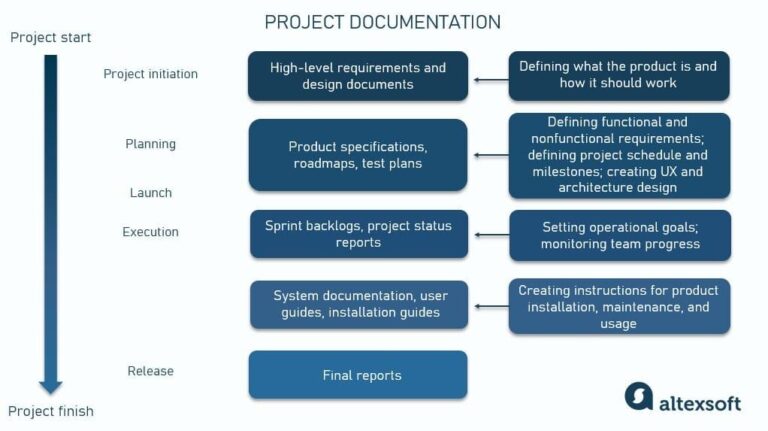Shutdown of Nigeria’s Trans Niger Pipeline: Consequences for Oil Production and Economic Stability
The recent explosion that led to the shutdown of the Trans Niger Pipeline has significantly disrupted NigeriaŌĆÖs oil infrastructure, raising concerns about its impact on crude oil production and the overall economic landscape. This incident, which took place in the conflict-ridden Niger Delta region, highlights persistent issues within the oil industry, such as sabotage and vandalism.As authorities investigate this event,it is clear that the repercussions will extend beyond immediate production losses to affect local communities reliant on this vital sector. This article delves into the specifics of the explosion, its short-term effects, and potential long-term ramifications for Nigeria’s economy.
Effects of Trans Niger Pipeline Closure on Oil Production and Economy
The closure of the Trans Niger pipeline has triggered a cascade of negative consequences for both NigeriaŌĆÖs oil output and its broader economy. Serving as a critical conduit for transporting crude from the resource-rich Niger Delta to refineries and export facilities, this pipeline is essential not only for industry operations but also as a key source of government revenue. Following the blast,estimates indicate a meaningful drop in daily oil production by thousands of barrels. Major operators have been compelled to suspend their activities temporarily, leading to increased operational costs and possible penalties under international agreements. The ramifications are likely to deepen furtherŌĆöimpacting local employment opportunities, investment flows, and government budgets heavily dependent on petroleum revenues.
The economic fallout from this pipeline shutdown goes beyond immediate production losses.With global oil prices fluctuating unpredictably, Nigeria risks losing its competitive position among other exporting nations. Key economic indicators are already showing signs of distress; analysts forecast potential declines in GDP growth rates due to these disruptions. Stakeholders are particularly concerned about:
- Foreign Direct Investment (FDI): A decline in investor confidence could hinder capital inflows.
- Job Market: Increased unemployment within the oil sector may worsen existing joblessness.
- Inflation Rates: Rising operational expenses could trigger widespread price hikes across various industries.
The Nigerian government faces mounting pressure to tackle security challenges alongside infrastructural deficiencies affecting oil production if it hopes to restore stability and regain investor trust.
Investigation into Blast Causes and Future Safety Protocols
The explosion at Nigeria’s Trans Niger pipeline has raised serious concerns regarding safety protocols surrounding critical energy infrastructure in this area. Initial investigations point towards multiple contributing factors such as suspected sabotage or equipment malfunction coupled with insufficient monitoring systems. Authorities are currently gathering eyewitness testimonies along with forensic evidence aimed at reconstructing events leading up to this incident.The Nigerian National Petroleum Corporation (NNPC) has committed itself fully to cooperating with investigative efforts while stressing an urgent need for thorough reviews concerning existing safety measures.
This incident underscores an urgent necessity for implementing stringent safety protocols designed to mitigate future risks effectively; proposed strategies include:
- Routine maintenance inspections on pipeline systems.
- Advanced surveillance technologies, capable of detecting leaks or unauthorized access swiftly.
- Civic engagement initiatives, fostering collaboration between local communities while gathering intelligence regarding potential threats.
- Tougher penalties,aimed at deterring acts against vital infrastructure like vandalism or sabotage.
This comprehensive strategy seeks not only protection over pipelines but also aims at enhancing public trust concerning safe transportation practices within NigeriaŌĆÖs energy sector.
Strategic Recommendations for Maintaining Pipeline Integrity While Minimizing Downtime
<pTo address risks associated with pipeline operations effectively while ensuring long-term integrity requires operators prioritize robust detection systems capable enough quickly identify anomalies or threats .Techniques such as regular assessments utilizing smart pigging technology and integrating real-time data analytics can greatly improve preemptive responses before minor issues escalate into major disruptions. Furthermore , establishing collaborative frameworks involving local populations can enhance understanding around operational impacts , facilitating timely interventions thus reducing chances vandalism incidents occurring .
Additionally , investing resources training programs focused emergency preparedness response plays crucial role minimizing downtime pipelines . By fostering culture safety continuous learning organizations empower personnel act decisively during emergencies . Implementing predictive maintenance strategies alongside thorough risk assessment frameworks enables stakeholders prioritize repairs efficiently ensuring smooth operation pipelines whilst strengthening community relations reinforcing social license operate effectively.
Conclusion: Navigating Challenges Ahead
In conclusion ,recent closure caused by significant blast highlights ongoing vulnerabilities facing Nigerian energy infrastructure. Immediate concerns revolve around supply disruptions economic implications though broader challenges maintaining security safety persist throughout country ŌĆÖ s energy sector remain paramount importance moving forward . As investigations continue necessary repairs undertaken stakeholders closely monitor situation mitigate lasting impacts ahead ; prioritizing resilience infrastructures safeguard against future incidents ensure stability one Africa ŌĆÖ s largest producers oils remains imperative.







